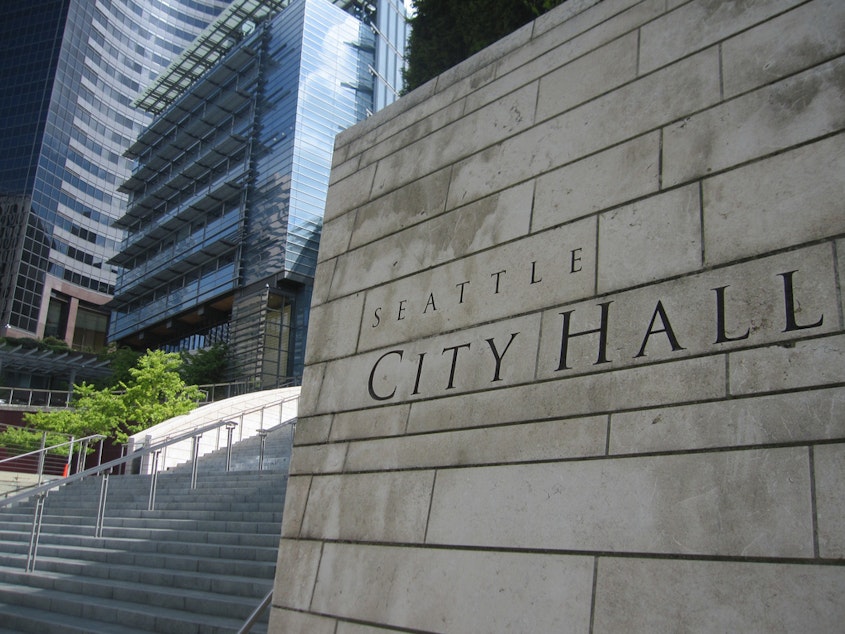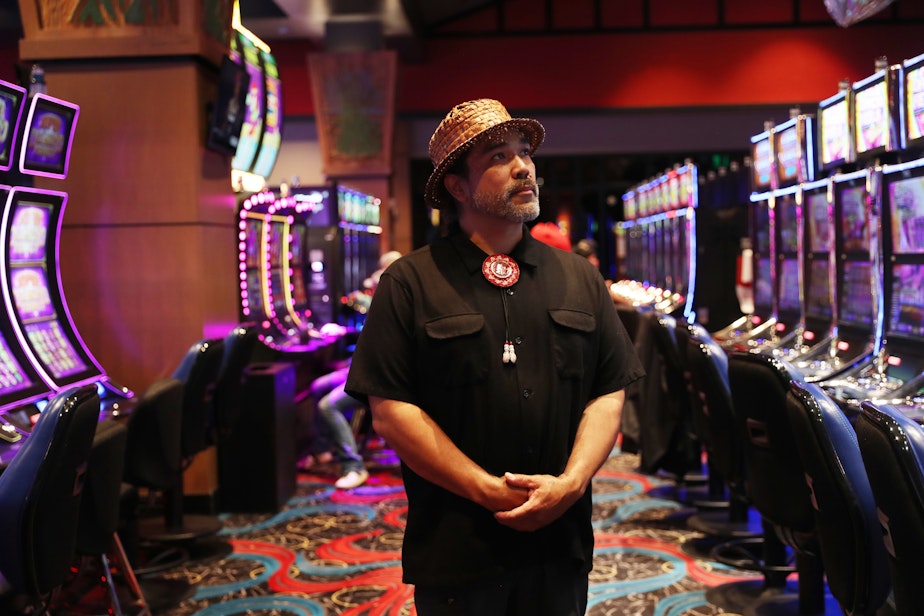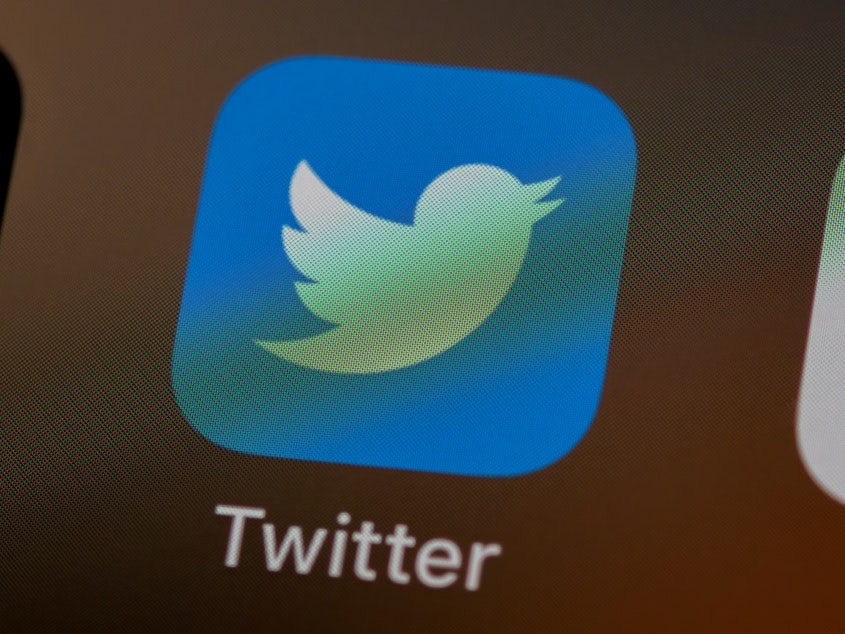Seattle's latest discussion to tax big business: Today So far

- The Seattle City Council is considering taxes on big business ... again. But could it be different this time around?
- Point Defiance's Five Mile Road is cut down to three miles.
- A proposed policy change for the Marysville School District has devolved into a culture war.
This post originally appeared in KUOW's Today So Far newsletter for May 19, 2022.
This headline might seem like white noise in Seattle: the Seattle City Council is considering taxes on big business ... again. But there might be some differences this time around.
Councilmember Teresa Mosqueda tells KUOW's David Hyde that the city faces a $35 million budget gap next year. Further financial strains are expected beyond that. One solution under consideration is raising the JumpStart tax, which is placed on the city's largest companies (it's based on the number of high-paid employees working in town). The tax raised $231 million in its first year, and it's expected to take in more in the years ahead.
What is new this time around is that the Council appears to be working with Mayor Bruce Harrell's office to form a task force on this issue. The Council and the mayor's office haven't always worked well in the past. Harrell has been known for his desire to work with businesses on taxing issues. The work ahead may be a bit different than what we've seen over the past few years. We'll see.
"Taxes are not inherently bad," said Seattle Metro Chamber President Rachel Smith. "They pay for getting results and outcomes on the priorities that we have as a community."
But, Smith adds, the city needs to lay out a plan for how it would use any newly raised tax funds. Read more here.
If you've ever had the chance to drive the scenic cliffside road through Tacoma's Point Defiance, cherish the memory. Five Mile Road has been cut down to three miles. There are a few reasons why: Climate change raising sea levels; pounding waves; stormwater exacerbating erosion. It adds up to the bluff slowly falling away and its edge getting closer and closer to the road.
Two miles of road are now closed, however, it is still open to bicycles and walkers. There are some potential solutions to the problem, but those would cost money, which the park does not have. Read more here.
A proposed policy change for the Marysville School District has devolved into a culture war. The school board wants to implement a new rule that would require students to ask parental permission to participate in clubs. Ya know, so that the parents don't have to worry about any bad influences that little Jimmy would experience at chess club.
Though, some students are pointing out that clubs relating to LGBTQ groups are meant to be a safe space, especially for students that might not have the most supportive, or safe, home environment. It's a valid concern. LGBTQ youth are far more likely to experience homelessness. And "family rejection" is among the top reasons behind this fact. You generally don't hear parents getting in a huff over their kids joining the mathletes. Parents might not understand why their kids are into the anime or Pokemon clubs, but they're not likely to kick them out of the house for it. Some students, teachers, and parents argue that forcing students to get a parent's signature could put them in harm's way.
KUOW's Soundside just spoke with Daily Herald of Everett reporter Isabella Breda about developments in the Marysville School District. Hear that conversation here.
AS SEEN ON KUOW

Hanford Mccloud, 6th tribal council member, stands for a portrait on Wednesday, May 18, 2022, at the Nisqually Red Wind Casino near Olympia. A legal battle has emerged over Washington state's rules for sports betting. Tribal casinos have the legal authority to engage in sports betting under new regulations. But private gambling businesses are still not allowed. That is spurring arguments over how the state regulates this corner of gambling, as well as tribal sovereignty. (Megan Farmer / KUOW)
DID YOU KNOW?
Myself and others at KUOW have received some feedback over our use of the term "insurrection" while referring to the events on Jan. 6, 2021. The general pushback is that the term is "hyperbolic." I also use "mob," "attack," and "riot" — all aptly describe what happened that day at the Capitol.
But this is why I also use the word "insurrection."
Whether it's this definition, or that definition, an insurrection basically comes down to a violent attack on a government or authority. Merriam-Webster notes that an "insurrection" implies "an armed uprising that quickly fails or succeeds." People were armed with weapons. And people died as a result of this attack on our government and our democracy. Add that up, and that's why I call it an "insurrection."
Now, just because they weren't good at it, doesn't mean it wasn't an insurrection. Just because the Mariners don't win a game, doesn't mean they aren't playing baseball. The Son'a never were successful in overtaking the Ba'ku, but the film is still called "Star Trek: Insurrection."
I've also asked my KUOW colleagues for their thoughts on this. KUOW's News Director Gigi Douban points to NPR's policy on the matter, which states: "By definition, 'insurrection,' and its derivative, 'insurgency,' are accurate. 'Riot' and 'mob' are equally correct. While these words are not interchangeable, they are all suitable when describing Jan. 6."
I hope that helps explain the considerations that take place behind the reporting.
ALSO ON OUR MINDS

Twitter aims to crack down on misinformation, including misleading posts about Ukraine
Twitter is stepping up its fight against misinformation with a new policy cracking down on posts that spread potentially dangerous false stories. The change is part of a broader effort to promote accurate information during times of conflict or crisis.

